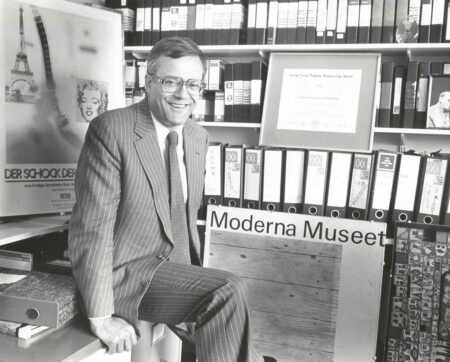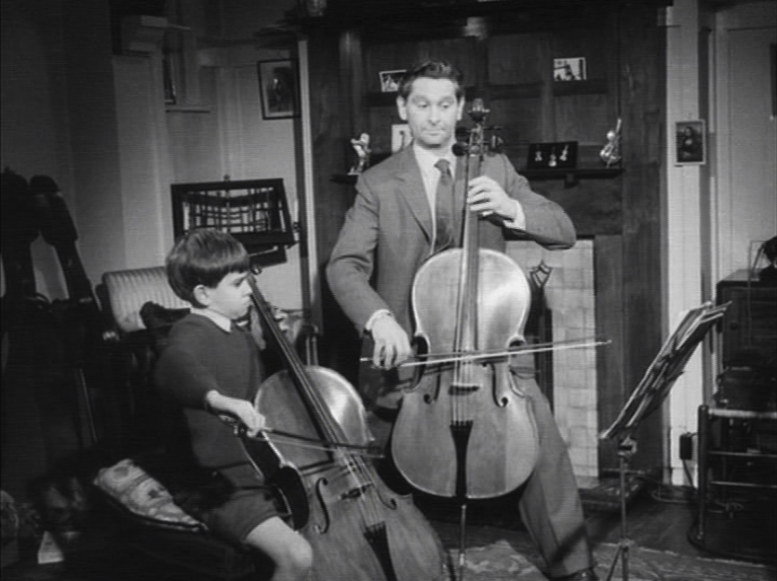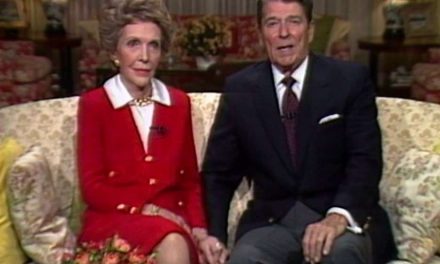Sir Humphrey Burton, 90 in March and now publishing his long-awaited autobiography In My Own Time, is that rare beast: a television executive liked by programme-makers. Twice the Head of BBC TV’s Music & Arts department, amongst so many other distinctions, Sir Humphrey’s fingerprints remain visible across television more than three decades after departing it.
Let me test that claim.
Take the Young Musician of the Year contest, of which the final was belatedly held at Bridgewater Hall and transmitted on BBC Four in early May. This annual competition was devised by Burton in 1978 and he presented it until the early 90s.
Or what about The South Bank Show which now resides on Sky Arts. In its beginnings, presenter/ producer Melvyn Bragg inherited the crew and formula of Burton’s own arts strand for London Weekend Television, Aquarius. This itself was a spiritual descendent of Monitor on which both Bragg and Burton had first cut their television teeth. On Friday, Bragg and Burton will be reunited for a special filmed conversation on the BFI’s YouTube channel.
Last night’s Delia Derbyshire film on BBC Four (Sunday 16 May) is, according to my tally, the 725th edition of Arena in 46 years. One of Burton’s first actions upon returning to the BBC in 1975 was to devise this new magazine show about the arts, which gradually morphed – as arts magazines have a tendency to do – into single films, under the various editorships of Leslie Megahey (who he first hired in 1967), Nigel Finch (who worked for him at LWT), Anthony Wall (hired in 1978) and Alan Yentob, who gave the series its signature stamp when appointed Arena’s first sole editor by Burton in late 1978.
The Lemn Sissay edition of Imagine…, presented by Yentob, is repeated tonight (Monday 17 May). This particular arts strand first appeared in 2003 as a successor to Omnibus, which had been the BBC One flagship ever since its launch by Humphrey Burton in 1967. Burton had presented it frequently in the mid-70s and mid-80s, and Yentob had directed several of its films, including Cracked Actor. I’m tempted to draw a parallel between last year’s Imagine… on the Kanneh-Mason family, This House is Full of Music, one of the first arts documentaries made entirely in lockdown, and Burton’s memorable 1960 film for Monitor on the Allegri Quartet, whose domestic life was similarly foregrounded alongside their practice and public playing.
And I’ve not even mentioned BBC Two. Look no further than the second channel for a symbol of Burton’s enormous impact on British television. When he left Monitor in 1963, after a year as its Editor, it was to join the team developing a new programming offer for the public. As Executive Producer, Special Projects, he set about devising music television specifically for BBC Two, which would lead to a boom in concert recordings and conductor workshops. In the opening weeks he produced Barrie Gavin’s film of Aaron Copland, and studio directed this recital by Benjamin Britten and Peter Pears.
A new channel not only demanded considerably more programming but many more producers to deliver them. Gavin, who was appointed at this time and has since made hundreds of films, readily states that he owes his career to Burton. This was no one-off. At LWT where he presented Aquarius for several years, Burton introduced Russell Harty to television audiences and behind the scenes cultivated a range of directors and production personnel who are fiercely bonded as friends to this day. It was ostensibly his own Monitor, and clearly for him an essential ingredient to achieving this was a happy band of creative minds.
In preparing this blog, I noticed that on this day in 1962 Humphrey Burton was formally appointed Editor of Monitor. The editor in its first four years was of course Huw Wheldon, by now heading upwards on the managerial ladder, and in Burton he saw a protégé; one who could be relied upon to maintain the values of the strand, and particularly its ethos of collaborative filmmaking.
What Wheldon may also have anticipated is how these values would extend well beyond Monitor. Indeed, it was an ethos that drove much of Burton’s subsequent career. As a life-long evangeliser of music and democratiser of the arts, his recent interventions on the state of classical music programming at the BBC demonstrates this knight’s undimmed passion for public service broadcasting.
Happy birthday, Sir Humphrey.
In My Own Time: An Autobiography is published by Boydell & Brewer on 21 May. You can order it here.
Televising the Arts – Humphrey Burton at 90 goes live on the BFI YouTube channel on 21 May at 7pm.
Ian Greaves is researching a history of arts television and has published widely on television and theatre history, and has edited collections of the work of Dennis Potter and Dr Jonathan Miller. He spent the first lockdown as consultant on the BBC Four documentary Drama Out of a Crisis: A Celebration of Play for Today.








